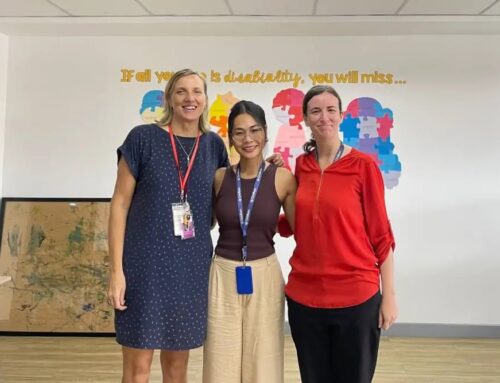[ad_1]
For many families in Phnom Penh, one of the biggest concerns after an autism diagnosis is how their child will succeed at school. Parents often ask, “Will my child be able to keep up? How will teachers support them?” The truth is, with the right environment and professional support, children with autism can thrive academically, socially, and emotionally. This guide offers parents practical steps to ensure their child is set up for success.
Understanding Your Child’s Learning Style
Children with autism learn in unique ways. Some benefit from visual supports such as schedules and charts, while others need movement-based, hands-on lessons. A good school in Phnom Penh should adapt teaching methods to these differences rather than expecting every child to learn the same way.
When visiting schools, consider whether:
-
Teachers are open to using visual supports or communication aids.
-
The classroom follows predictable routines.
-
Staff have training in autism awareness and inclusion.
These elements make the learning process smoother and reduce anxiety for children with autism. To explore strategies teachers can use, see our post on how educators support children with autism in the classroom.
Why Assessments Build the Right Foundation
Before starting school, many children with autism benefit from a developmental assessment. This helps parents and teachers understand your child’s strengths, challenges, and what kind of support they will need.
At OrbRom Center in Phnom Penh, we provide assessments that guide individualized learning strategies. Whether a child needs speech support, sensory regulation, or tailored social goals, assessments help design a plan that works.
If you’re wondering about the process, our article on what happens during an autism assessment explains it clearly.
Choosing a School in Phnom Penh
Not all schools are equally prepared to support children with autism. When researching schools, parents should look for:
-
Inclusive values: The school actively embraces diversity.
-
Small class sizes: A lower student-to-teacher ratio ensures attention.
-
Sensory-friendly environment: Quiet areas for children who may feel overwhelmed.
-
Partnerships with therapy providers: Schools that collaborate with therapists often provide better outcomes.
For a deeper understanding of the Cambodian context, explore our post on autism in Cambodia.
The Role of Therapy in School Success
Even when a school is supportive, therapy can make a crucial difference. At OrbRom Center, we provide specialized services that complement school learning.
For an overview of the benefits of individualized approaches, read our post on individualized support is key.
Working Together for Your Child’s Progress
Collaboration is essential. When parents, teachers, and therapists share updates and strategies, children progress faster. Parents can help by:
-
Reinforcing school routines at home.
-
Using visual schedules and social stories.
-
Maintaining regular communication with teachers and therapists.
Simple, consistent support at home complements professional therapy. For practical tips, check our article on ways to support a child with special needs at home.
Final Thoughts
Helping your child with autism succeed at school in Phnom Penh requires preparation, patience, and partnership. The journey is not just about academics—it’s about building communication, independence, and confidence. With the right school environment and professional services, your child can thrive.
At OrbRom Center, we are committed to supporting families with autism through assessments, therapy, and individualized interventions. Together, we can make school a positive, empowering experience for your child.
For more insights, see our post on parenting an autistic child.
[ad_2]
Source link






